If you haven’t seen this superb film yet then there is an opportunity to see it at Clinton Hall – Merton
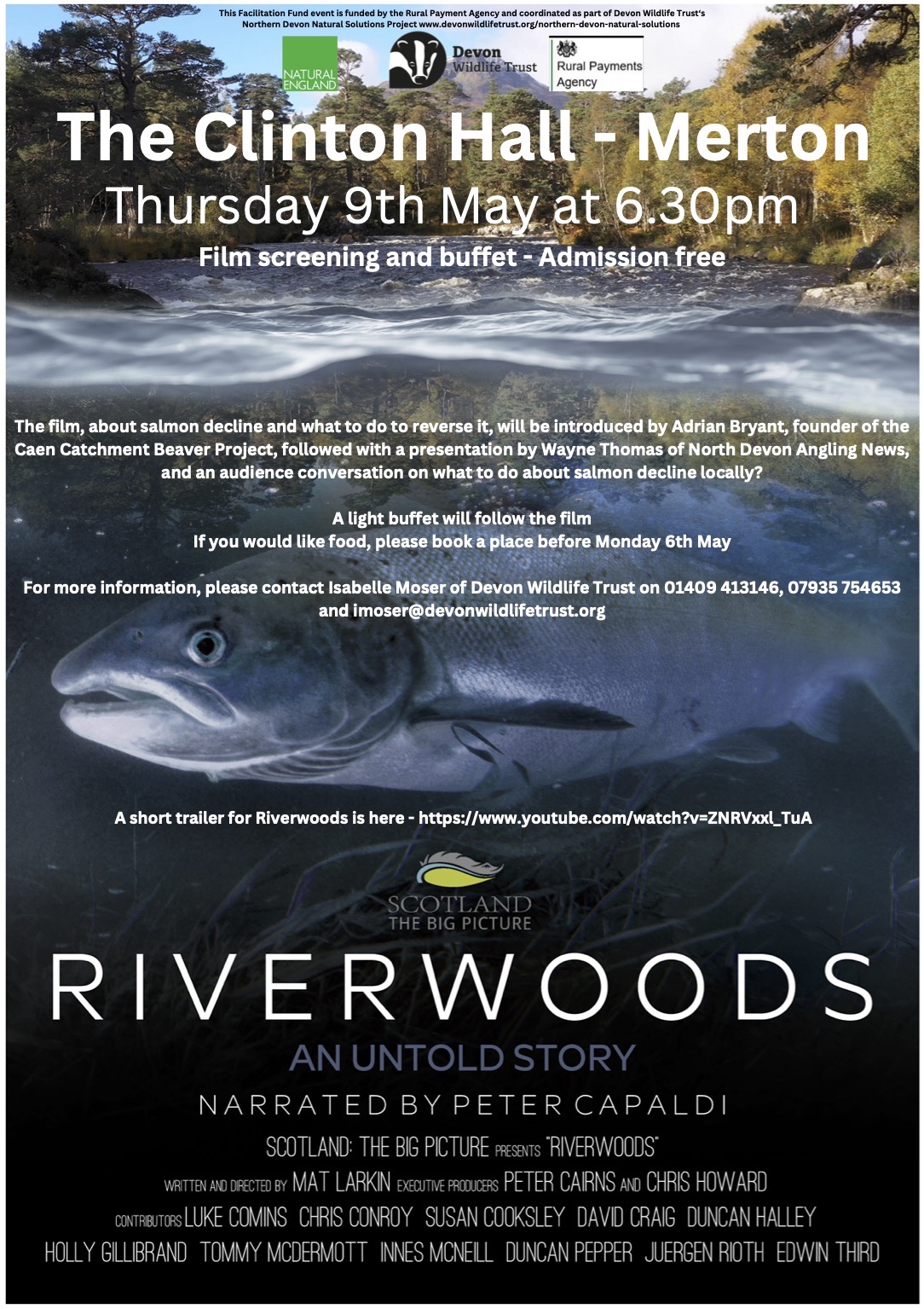
If you haven’t seen this superb film yet then there is an opportunity to see it at Clinton Hall – Merton

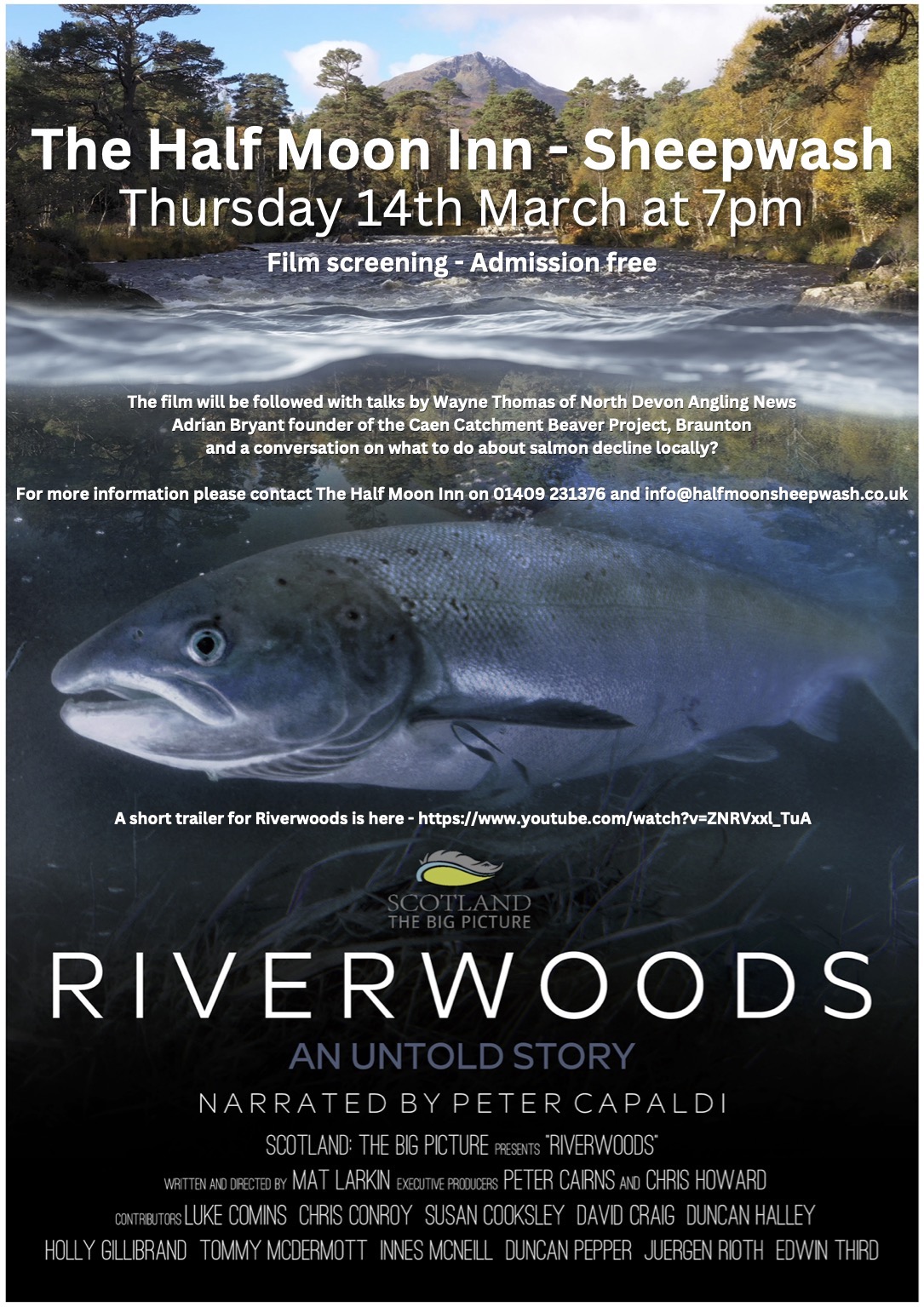
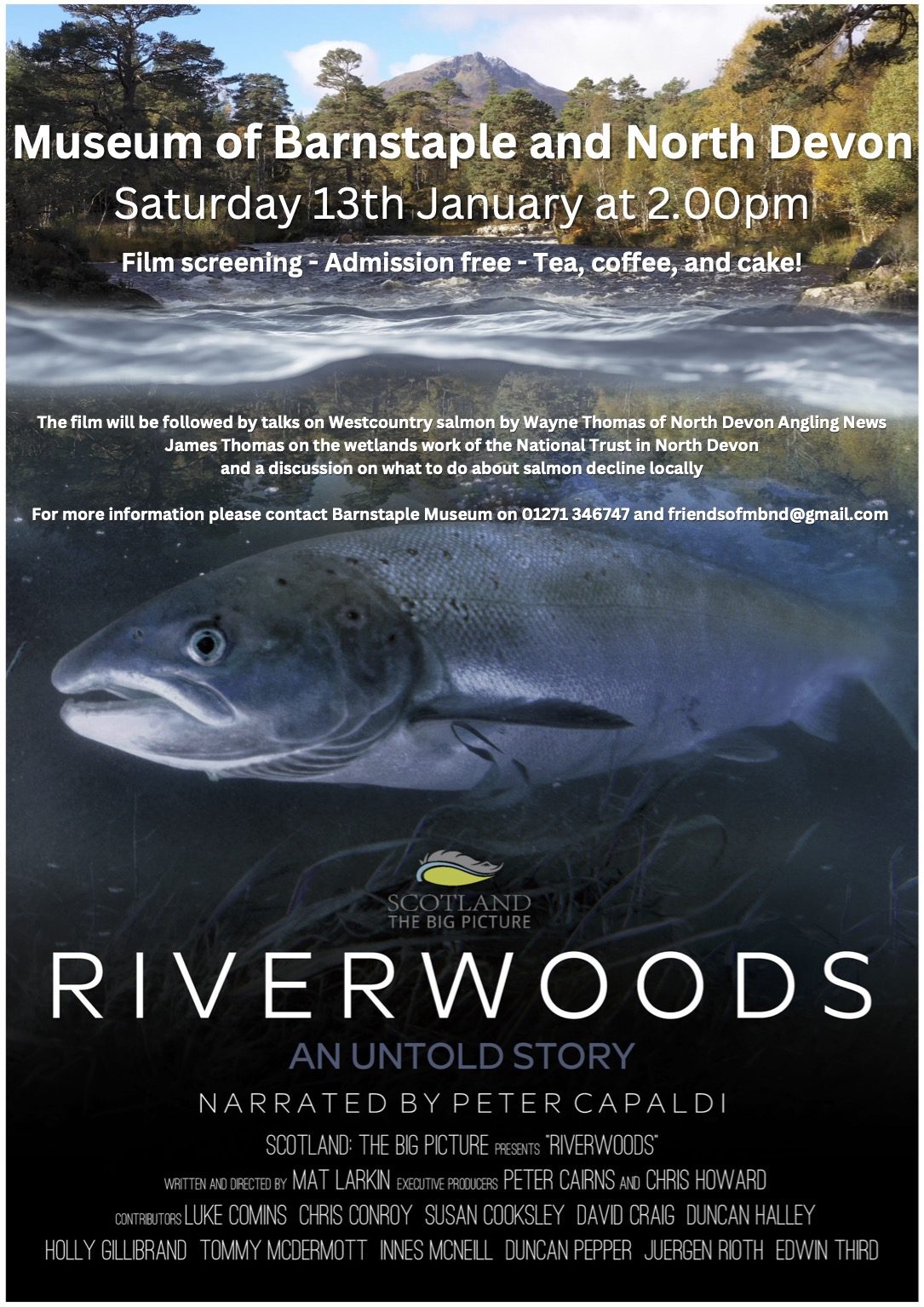
Pithily-ShitPrizes! Nominations! Wazzat? |

If you have any doubts about whether or not 2023 was a good, bad or just indifferent year for fish, I have some news. It comes, unexpectedly, from the people who like to put a gloss on the world and reassure us all is well.
Sometimes reality intrudes on their seasonal good cheer:
“This year wasn’t so bad, if you make allowances for the conditions,” Salmon Fishing Travel Promo.
I’ll translate: 2023 was so bad they’re worried their clients might take up rock collecting or puddle-jumping instead of spending their money on fishing. It was the year of malevolent spirits known collectively as TheConditions. To save time listing them, I jammed my head into a free online word-cloud generator, shouted ’FISHING CONDITIONS’, and it spat this back:

‘Lying bastards’ should be in a bigger neon typeface (it’s between excrement and death), but otherwise, it’ll do. You can add/subtract your own ideas.
This is deadly serious: At stake is an entire ecosystem. Salmon prop up everything from bears and forests to orcas at sea. Their loss would be an ecological and economic disaster with terrible consequences.
I know nobody who fished anywhere in 2023 who’s celebrating greatconditions. According to one globe-trotting contact, the year’s fishing was all, and he said it pithily, Shit. Which scans like an old-fashioned train rolling down the track … Pithily Shit, Pithily Shit, Pithily-Shit. Try it out loud. And it’s a great name for a fishery mismanagement award. Imagine: “And the winner of this year’s Pithily-Shit Prize is ….”. Suggestions? I have a hatful.
These Conditions come in two principal varieties; dire fishery management and climate-driven. Like many others, I’m playing catch-up with the speed of it all.
Fishing is big business in sea & river, with economic muscle and political clout. And that has consequences. And so does this: North America is a significant hold-out against science generally and climate science in particular – an astonishing 10-15% are sceptics whose scintillating mental arithmetic makes mainframe computers gasp with envy.
So, when environmental (science) data is unwelcome, route one is to attack – it’s bullshit, being a top technical rebuttal. And route two is to twist political arms.
We can follow the dollars and see this playing out just about everywhere. For example, in British Columbia – where it’s been making the news recently.
Canadian Salmon and Steelhead, a sea-run rainbow trout, swim in much the same pithily-shit word cloud as everywhere else. Although, according to the BC authorities, they don’t. Bear with me – this is relevant wherever fish migrate.
We have a lot of good data on BC’s Steelhead runs. The Skeena River test fishery, for example, shows 2023 was the 2nd weakest run in decades (10k fish), coming just 2 years after the worst (5.5k) on record. The yearly average over nearly 70 yrs is about 35k.
That’s the number arriving in the estuary, so before the lethal river gill nets and then the myriad anglers – including me – who catch (and I hope release) their share along the hundreds of miles of main river and principal tributaries.
So how many female fish in prime condition will make it to the redds in this shrunken-run year of desperately low flows and high water temperatures? Surely, not enough. And we also know that juveniles, the smolts, are surviving the return journey to sea in ever smaller numbers (everywhere). Warmer water makes for smaller smolts – and size is a matter of life or death.
This, you might think, is dreadful news for the fish. Not so, according to British Columbia’s fishery dons (the Dept of Fisheries and Oceans). It was business as usual.

Awkwardly, for the dons, Canada’s Auditor General has just released yet another report revealing how they’re screwing things up, big time. It gets worse when you look at how and why.
It seems the dons, whose remit features conservation, happily grant legal protection to species of no commercial value while just about always blocking it for $ high-value species, like salmon. And why would they do that? I think you just guessed.
They make their decisions with the help of unverified data supplied by anonymous ‘collaborators’ who, according to the AG, have conflicted interests in, for example, the commercial fishery. Who’d-a thought it? And while the dons are legally obliged to report and root out such conflicts of interest, they regularly don’t (says the AG). Because maybe they’re mates, or siblings or neighbours? Or some such.
It reeks of cronyism and corruption.
As said, the Skeena is just one among many. The report covers all Canadian regions. And, worldwide, fishery managers are bigging up stocks, mismanaging and covering up threats like disease and climate change while piling on the nets and rods – and trousering the $s.
Unsurprisingly, more fishermen are staying away. Once-exclusive beats on famous rivers are becoming easier to access – and disappointing to fish.
So it should come as no surprise that a senior DFO official wrote this of the dire 2021 run: There’d be no protection for the fish because the Skeena data is “…a measurement problem and it’s not precise enough to warrant massive socioeconomic impacts and alienating those that care about Steelhead the most.” There were just 5.5k fish, a record-busting low, andhe’s suddenly spotted a measurement problem with near-70 yrs of continuous data? And who are these most caring victims of ‘massive socioeconomic impacts’. Whose money? Well, it sounds like those vested interests outed by the AG. So there’s the playbook: Undermine the facts, falsely claim the moral high ground and hug your collaborators tight. And screw the fish (and the Auditor General).
I nominate the writer for a Pithily-Shit Award (a turd on a styrofoam plinth, perhaps). I’ll have to make a lot.

When a species gets into as much trouble as the Steelhead on the Canadian and US West Coast, the moral and scientific imperative is to prove fishing is sustainable. We shouldn’t keep hammering them to see if the population collapses. Here’s another DFO “measurement problem”:

As a general observation, endemic corruption is very hard to shift.
So what to do to help the fish here, there and everywhere? If we are so minded, there’s a lot. We can start by putting people in charge who care about them. We can clean up our rivers, get rid of dams, restore headwaters, limit fishing pressure everywhere and treat them as a precious gift from Mother Nature and the foundation of an entire ecosystem. But will we?
And then there’s the really grim stuff: Events already underway that we’re powerless to influence. This is where I fear the Conditions may get impossibly tough.
For example: What was, at the time, the most powerful marine heatwave on record, “The Blob”, brought havoc to the North Pacific from 2014 to 2016. The impacts ranged from massive algal blooms to Baleen Whale die-offs.
It triggered a food chain collapse. Small bait fish are eaten by just about everything bigger than they are. The warmer water reduced their food supply (and the oxygen content of water) while increasing their metabolic rate, so they needed to eat more, but had access to less. Inevitably there were mass deaths and the survivors lost body weight and fat content.
This worked its way back up through the food chain. Everything had to consume more to keep pace with over-heating metabolic needs – but there was less to eat. Scientists estimate 1 million fish-eating sea birds, Common Murres, died of starvation and 100 million Pacific cod vanished from the waters off southern Alaska – and cod do not spawn in waters warmer than 9.6c (IMR, Norway). We’ll never know how many Salmon and Steelhead died.
This year has seen ocean temperature records aplenty (below) as the world hits its warmest for 125,000 years. There is more and worse to come.
We have it in our power to stop the rot but, oh my, there’s a lot to do. The flight of capital out of fossil fuels means that carbon emissions could start to fall in the next year or three. It’s a start, but we need to do the massively scaled-up equivalent of an emergency stop with a planet-sized supertanker.
Meanwhile, a handful of small-time idiots with mates and money in the game behave as though business as normal will deliver a happy ending for Salmon and Steelhead. They are the Pithily-Shits with the wilful negligence to fuck it up for everyone.
On a more cheerful note, good conservation practice is becoming a major project on some rivers. It’s a fearsomely complex puzzle …. but I want to go fishing in places where conservation drives management decisions and my presence (and money) make a net contribution for the better. Is that too much to ask? I can at least try – and I’ll start by not going anywhere beholden to the Pithily-Shitters.
And finally, here are some global sea surface temperatures to ponder (live link below). Is anyone dumb enough to call this Bullshit? Sadly, yes.

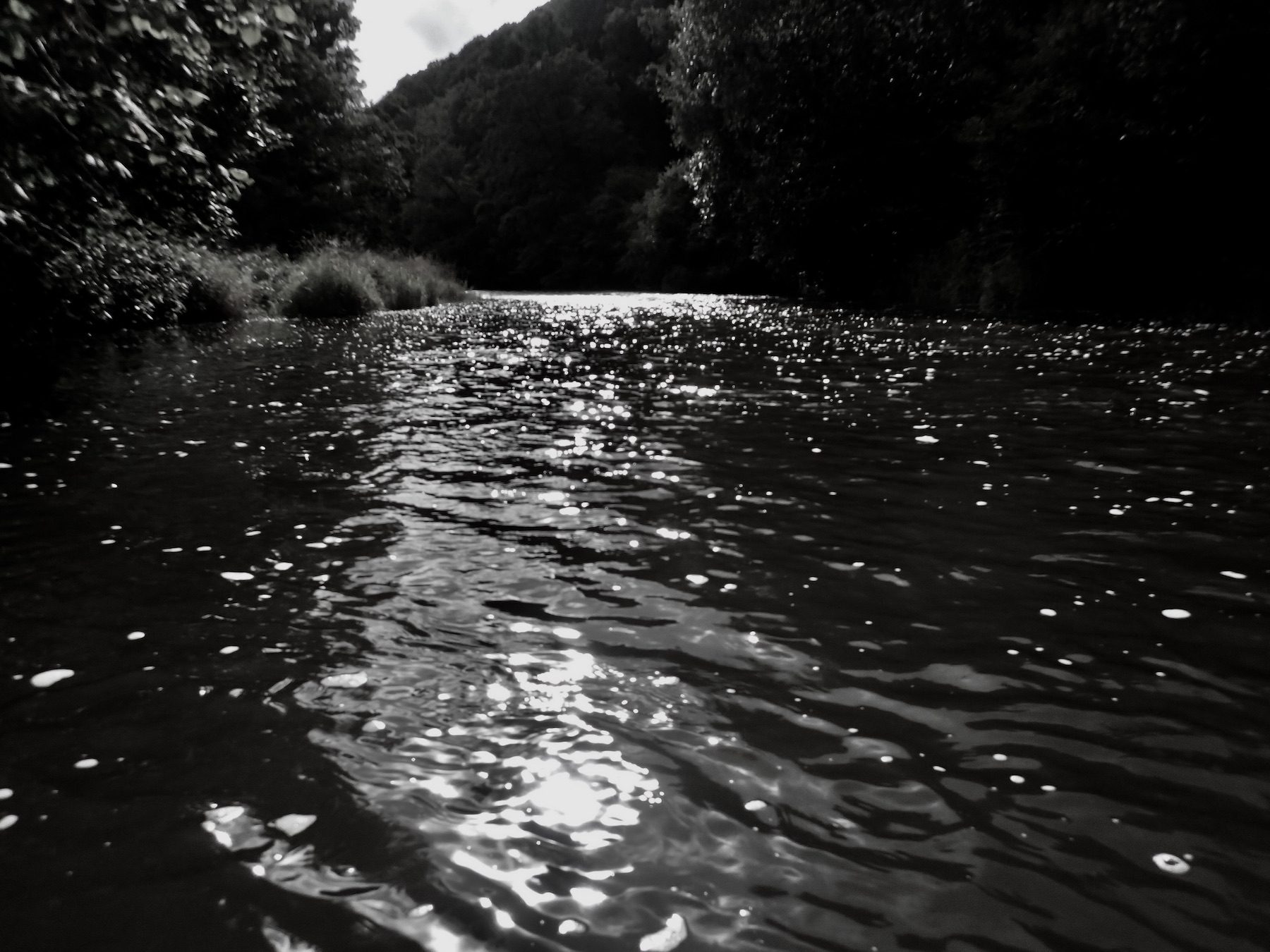
Data is vital in telling a story it’s not exciting, entertaining but it can be depressing and in the case of salmon and sea trout it’s a horror story. I caught my first salmon from the River East Lyn back in 1981 a year when 22,190 salmon were landed by rod and line anglers in England and Wales. Most of these fish were killed and taken for the table.
In 2022 the total rod catch for England and Wales was 6,388 of which 6.111 were returned. I doubt if 2023 will reveal any improvement in catches. The most alarming part of this is perhaps the steep decline in stocks since 2017 with catches plummeting from 13,571 to 6,388.
I am no mathematician and I know that data can be manipulated to some extent but this is stark.
To some extent the data is impacted upon by changing fishery regulations and fishing effort.
I am often asked what is the cause and I reply its complex.
An imbalanced eco system, Survival at sea, pollution, consequences of intensive farming, habitat loss, sewage, predation, poaching, salmon farming, overfishing, climate change, pollution, disease.
Beneath each heading there are many variables but I would hazard a guess, no lets google it. The world population in 1981 was 4,524,627,658 (around 4.5 Billion) it now stands at 8,045,311,447 ( just over 8 billion). So, the common denominator is likely to be a rapidly increasing population and an obsession with increasing GDP.
Where on the political agenda is the environment?
Salmon are of course just one iconic species that anglers take pleasure in catching but they are surely an indicator of a wider decline / collapse in the natural worlds eco systems. There is a growing awareness of nature’s decline as marvellous films like Planet Earth bring nature into our sitting rooms where we watch entertained as the splendour of the natural world is revealed and tales of its demise exposed in an unfolding horror story to surpass any Hammer Horror production.
As a young angler in 1981 I thought that salmon would always be present throughout my lifetime. If I am lucky enough to live another twenty years I could witness the extinction of these magnificent fish in UK waters.
“Don’t it always seem to go
That you don’t know what you’ve got ’till it’s gone”
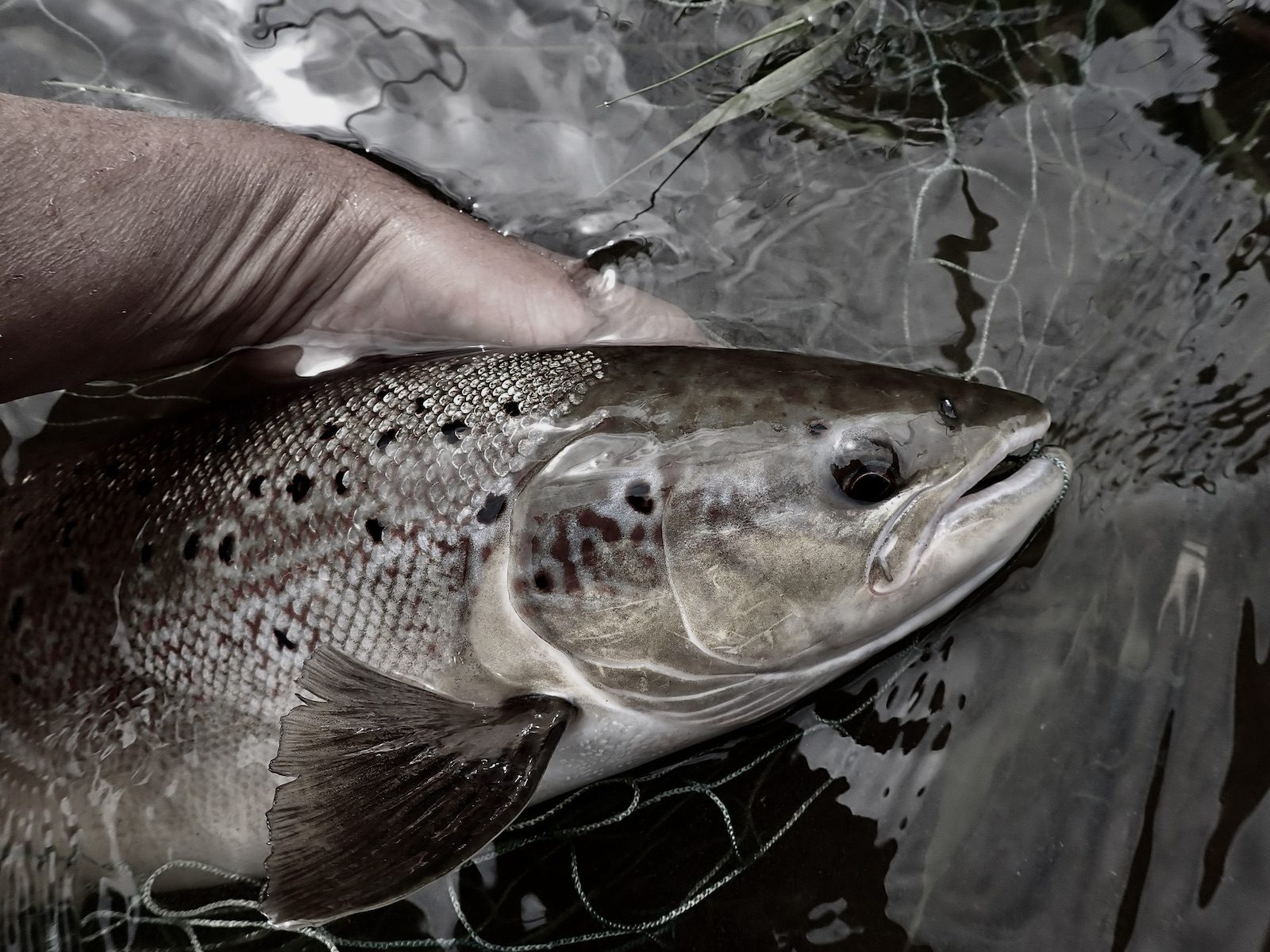
DATA MAKES FOR GRIM READING
Research and analysis
See Link Below
Salmonid and fisheries statistics for England and Wales 2022
Published 5 December 2023
Figure 1: Salmon stock status in England 2022
Risk value Number of rivers Percentage of total
Not at risk 1 2%
Probably not at risk 5 12%
Probably at risk 6 14%
At risk 30 71%
Is it too late? Maybe not for as nature and its demise climb up the political agenda there is a chance that those who care will do what needs to be done to address the many issues that impact upon salmon and the wider natural world. They say that where there is a will there is a way and there are some clever people out there and if given a chance nature is resilient and can recover.
BREAKING NEWS
| In the species reassessment released today by the IUCN Red List of Threatened Species, the main UK population of Atlantic salmon is reclassified as endangered – meaning they are threatened with extinction. Global populations are reclassified from least concern to near threatened.
Here in the UK, we are set to lose this incredible species before anyone else unless urgent action is taken. IUCN’s reassessment indicates that the mechanisms in place to protect Atlantic salmon are not working. The regulators responsible for their protection are failing both the species and the habitats on which they depend. The main threats to the UK populations of Atlantic salmon come as no surprise and include declining water quality, in-stream barriers, salmon farming, exploitation and climate change. In response to today’s announcement, our chief executive, Nick Measham, said this: “Thanks to the money raised by our supporters, we commissioned IUCN to reassess the status of Atlantic salmon stocks across the world. The outcome, although not unsurprising, is very grim. The UK population is in crisis thanks to our government’s and its regulators’ failures. We need the government to give our regulators the mandate and resources to act urgently to save our Atlantic salmon and their rivers”. |

https://www.justgiving.com/campaign/salmon-free-christmas

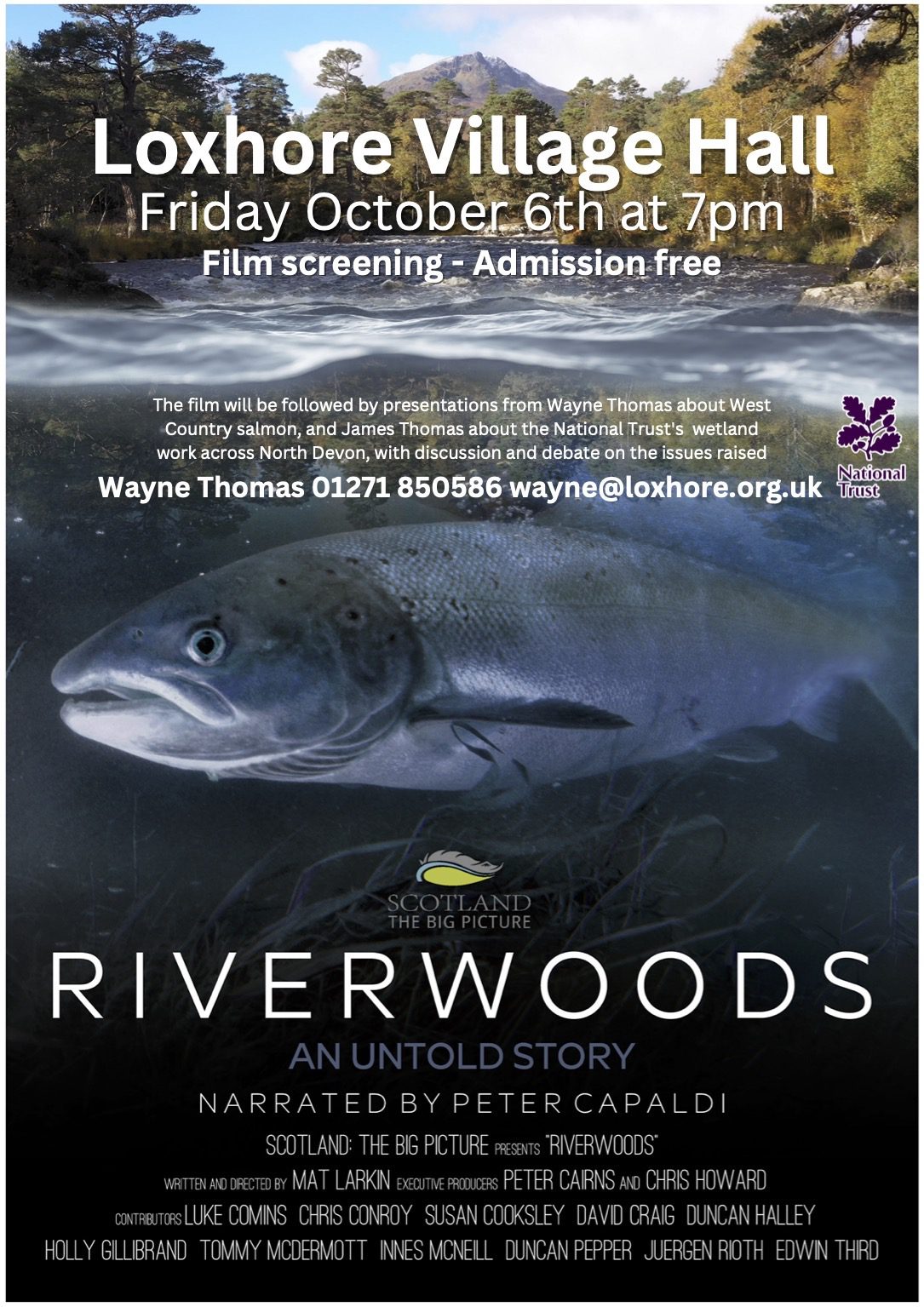

Inspired by tales of the past gleaned from old fishing books, the author sets out to fish those same waters, to cast the same flies on the same pools, to explore how fishing the streams of Exmoor might compare with fishing them over a century ago, whether those streams have changed and how they might be faring today. Exmoor rivers and streams appear pristine, barely changed since Claude Wade described them in his 1903 book Exmoor Streams, yet the numbers of trout he and other long-ago writers reported catching seem unbelievable today. Those streams must once have held an astonishing abundance of fish.
Modern problems affect even upland streams, yet many good folk are dedicated to their restoration and there is much we can do to help. River conservation work can be fascinating and rewarding as we develop a deeper understanding of river habitats through, for example, managing a balance of light and shade, monitoring aquatic invertebrates and cleaning riverbed spawning gravels then watching for their use when migratory salmon return home from the sea.
Those nail-booted, greenheart wielding fishermen of the past have gone but the streams still run on their wild ways, singing their endless songs to the moor. This book is for all who share concern for the wellbeing and conservation of our rivers and streams as well as those entranced by the rise of a trout to a well placed fly.
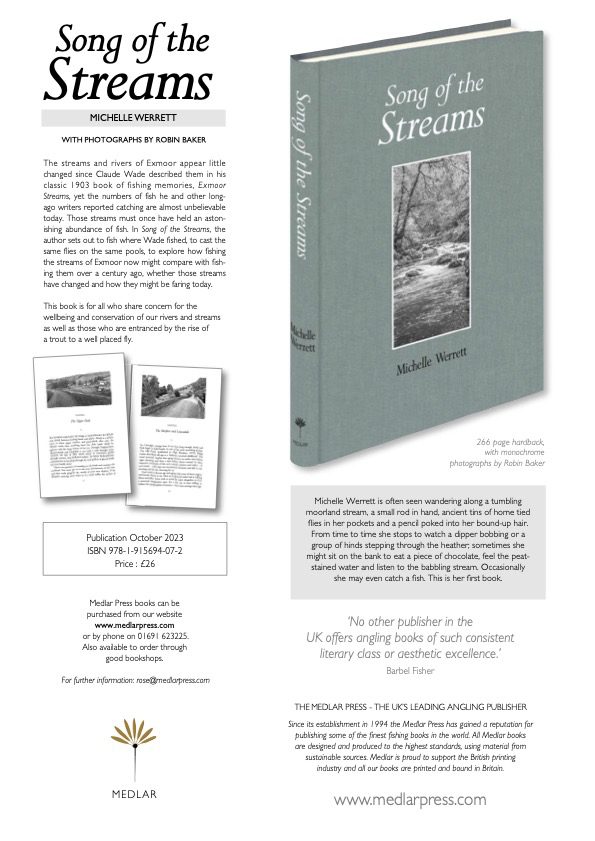
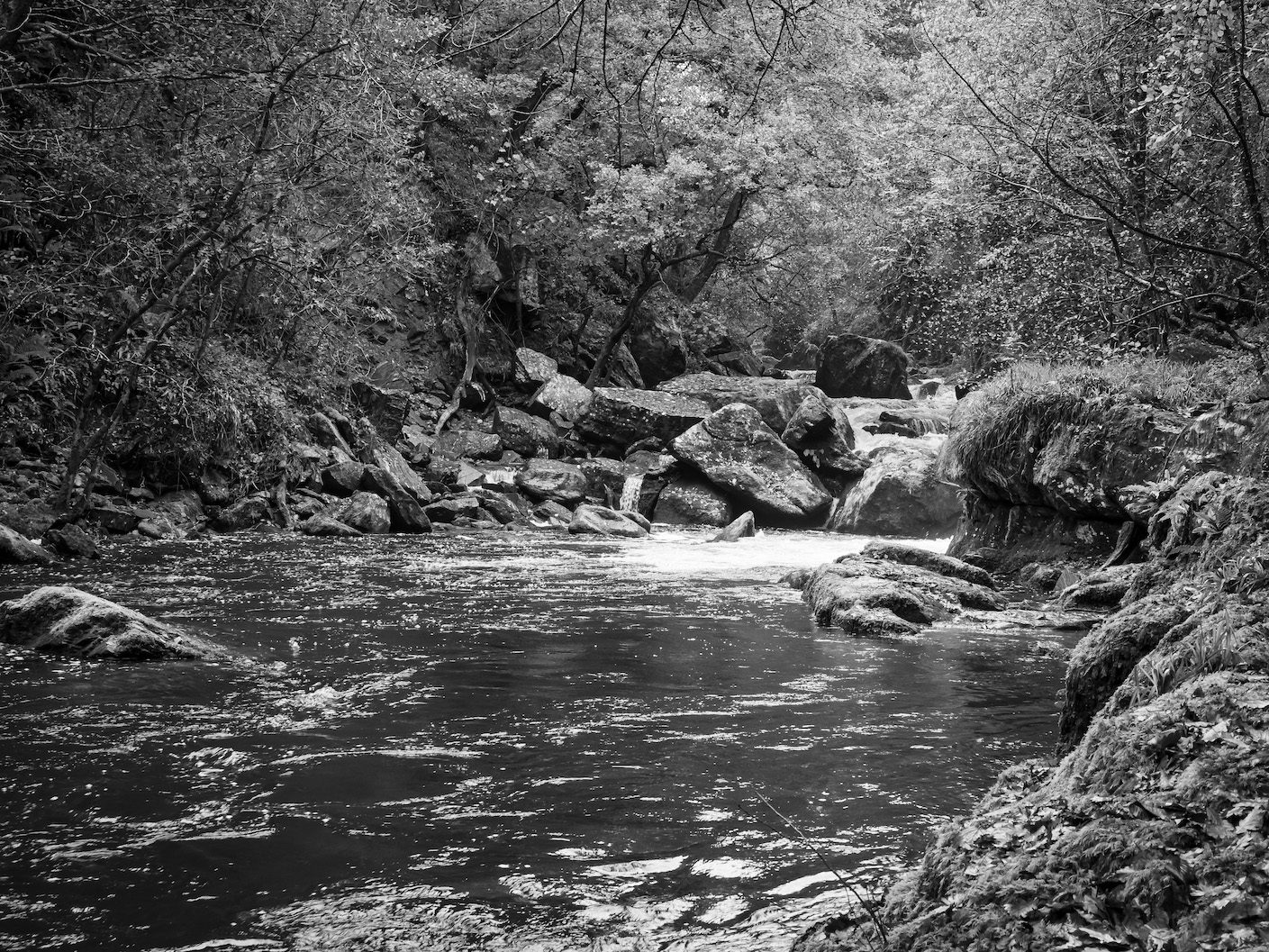
Vellacott’s Pool – East Lyn – Image Roger Baker
